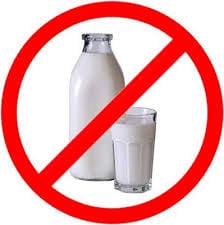
What is lactose intolerance?
Many people suffer from lactose intolerance, a condition where the body cannot digest lactose, a sugar that is in dairy products. Undigested lactose isn’t harmful but it can cause symptoms like bloating, diarrhea, gas and nausea. It can also keep you from getting specific, important nutrients like calcium and vitamin D. Symptoms can be relieved by limiting the amount of lactose in your diet. Only people who have symptoms are lactose intolerant and different people can tolerate various amounts of lactose without having symptoms. Lactose intolerance is least common in people who are from or whose families are from Europe. Your doctor might order a hydrogen breath test to confirm lactose intolerance, which can detect high levels of hydrogen in your breath. Indigested lactose can lead to high levels of hydrogen in your breath.
Lactose-Free diet
- Choose low-lactose dairy products, such as buttermilk and aged cheeses like cheddar.
- Eat foods with active cultures, like yogurt, that make lactose easier to digest..
- Eat or drink dairy products with other foods to lessen symptoms.
- Substitute fruit juice for some or all of the milk in recipes.
- Try lactase tablets.
- Avoid eating a combination of high‐lactose foods at one time, such as milk, butter and ice cream.
If you reduce dairy, be sure to eat other calcium-rich foods:
- Broccoli and leafy green vegetables like kale, bok choy, turnip greens
- Fish with edible bones, like canned salmon
- Tofu and beans such as pinto beans and navy beans
- Almonds and Brazil nuts
- Calcium-fortified items like orange juice, soy milk and cereal
- Oranges
- Calcium supplements
Try nondairy substitutes:
- Use soy and/or rice drinks and nondairy creamer in place of milk and cream
- Use soy cheese in place of cheese made from dairy products
- Use milk‐free margarine and vegetable oil in place of butter and margarine
- Substitute sorbet or frozen juice bars for ice cream
Check the label on boxed, canned, frozen, prepared and packaged food. Lactose can be found in baked goods like pancakes and cakes, processed meat like hot dogs and protein powders, smoothies and dairy-based meal replacement shakes or powders.
If the product contains milk, whey, curds, lactose, milk by-products, dry milk products or nonfat dry milk powder; then that product contains lactose.
References
National Institute of Diabetes and Digestive and Kidney Diseases. 2018. Definition and Facts for Lactose Intolerance. https://www.niddk.nih.gov/health-information/digestive-diseases/lactose-intolerance/definition-facts
Mayo Clinic. 2022. Lactose Intolerance. https://www.mayoclinic.org/diseases-conditions/lactose-intolerance/symptoms-causes/syc-20374232


